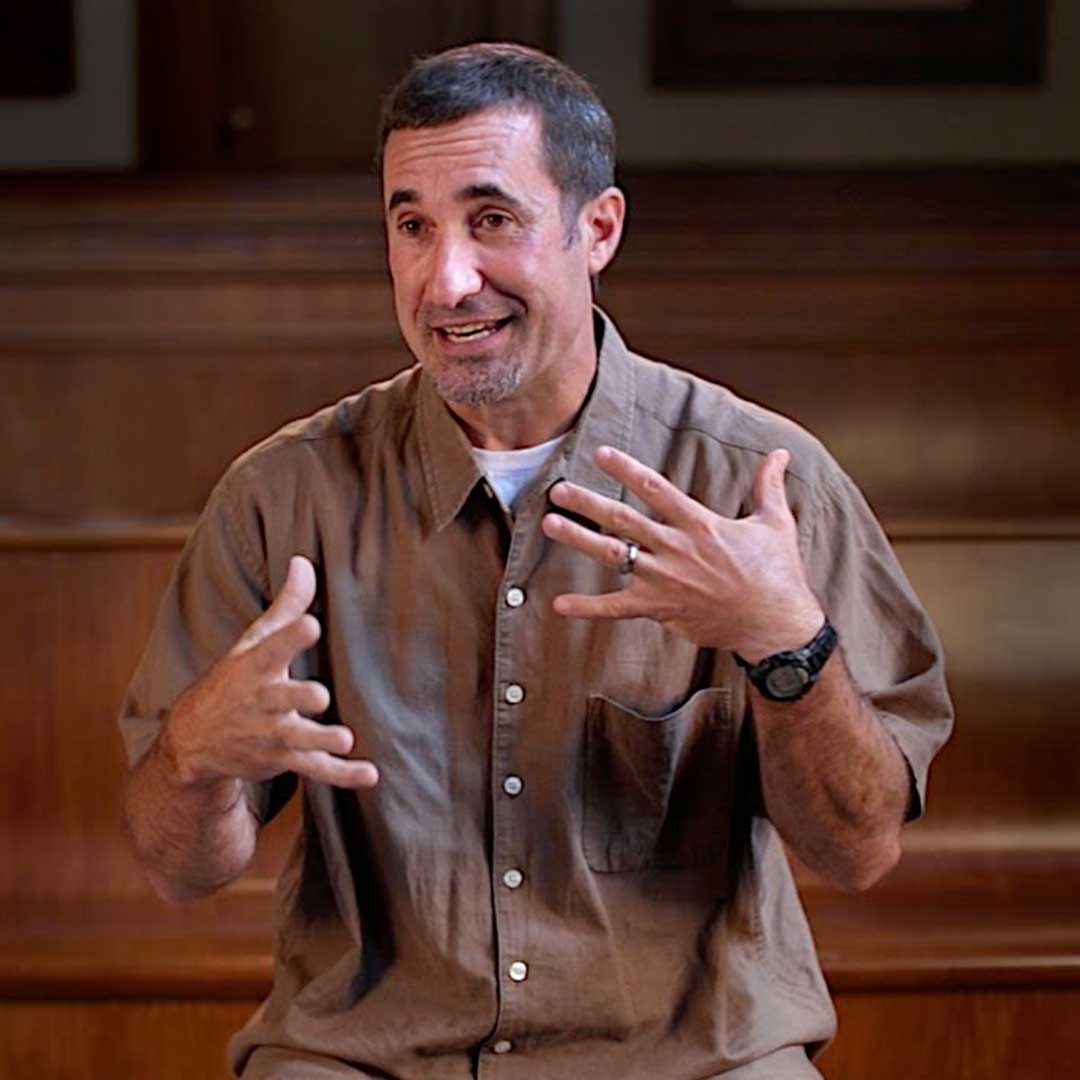
This article is from :
wwww.saturatetheworld.com
Editor’s note:
You won’t regret reading this.
Last week we announced the new partnership between Mission Québec and Jeff Vanderstelt. This week, be prepared for the first Saturate article on our blog as it is mind blowing. If you want to create a missional environment in your personal context, this article is exactly what you need to read.
There are 10 markers conducive to discipleship training. Today, you can read about 5 of them. Enjoy!
In the Story, we watch as Jesus makes disciples, turning fishermen into fishers of men.
Then before He ascends into heaven, He gives them the mission to also make disciples who obey His commands. Then over and over in Acts we see how they accomplished that mission. They did basically what Jesus did with His disciples; they proclaimed the good news about Jesus and established communities of believers to live this new life together as family.
Discipleship wasn’t merely a Sunday school class to attend or curriculum to be discussed or a smorgasbord of programs offered by a church. Those structures may teach what Jesus commanded, but alone they don’t create an environment where people learn to obey what Jesus commanded. A gospel-centered community on Jesus’ mission must be the context for discipleship.
Discipleship wasn’t merely a Sunday school class to attend or curriculum to be discussed or a smorgasbord of programs offered by a church.
The mission of our missional communities is to make disciples, but as leaders, we can no more force people to grow as disciples than a farmer can force a plant to grow. “So neither he who plants nor he who waters is anything, but only God, who makes things grow” (1 Cor 3:7). Much like a farmer, we get to create an environment that supports growth.
Discipleship is the holistic care of a small group of people who are consistently experiencing Jesus’ life and teaching together in a healthy discipling environment where they are learning to submit every area of life to the lordship of Jesus.
10 Necessary Qualities of a Healthy Discipling Environment
What kind of environment did Jesus create to develop His disciples?
1. Empowered by the Holy Spirit
John 14:15–20, 16:7–15, 1 Cor. 2:10–14, Romans 8:5–14, Galatians 5:16–26, Acts 1:8
Only the Holy Spirit can change hearts and transform lives. Therefore, He is the primary discipler and equipper of people. He teaches, reminds, convicts, helps, leads, reveals, counsels.
The Holy Spirit’s job is to make us like Jesus and to help us accomplish the works we’ve been created to do. The Holy Spirit calls us, equips us, and sends us out to bear fruit through His power.
“Making disciples” must be done in submission to and in partnership with the Holy Spirit. The Holy Spirit is the primary discipler and equipper of people. We can do nothing apart from Him (John 15:5).
“Making disciples” must be done in submission to and in partnership with the Holy Spirit. The Holy Spirit is the primary discipler and equipper of people.
What would it look like to disciple in submission to and in partnership with the Holy Spirit?
2. Gospel-Saturated
Romans 8:28–29; Galatians 2:14; Matthew 15:1–20, 20:20–28; Luke 6:1–11, 8:1–15
The gospel must permeate the discipling environment. It is ultimately the answer to every problem and the motivation to submit every area of life to the lordship of Jesus. In other words, it’s the motivation to apply the gospel to every area of life.
As we are amazed by God and His wisdom, power, glory, grace, and goodness revealed through His Story, and especially in Jesus, we find our security, significance, approval, joy, and satisfaction in Him rather than anything else. As the gospel seeps into every crack and crevice of our lives, we walk more and more in submission to Jesus, for our good and His glory.
We often see Jesus help the disciples reflect and apply truth based on experience. In the course of everyday events and conversations, He showed them how being a part of His kingdom gives a new perspective on everything. The truth of the gospel, when connected to experience, is much more likely to be remembered and applied.
Can the people in my missional community apply the gospel to their own lives and each other’s lives? Do our casual conversations often go to the gospel?
3. Community-Influenced
Matthew 8:23–27, 9:9–13, 9:35–38; Luke 22:14–23, 22:39–46
The disciples learned an extraordinary amount from watching and listening to Jesus. We can assume they also learned a great deal from their interaction with each other as they traveled, lived, and ministered together in close community.
The role of a missional community leader or DNA leader is important as a primary discipler, but much learning, modeling, and sharpening takes place between others in the group as they serve together and experience life together (i.e. example of a healthy family or successful sports team).
The accountability that can and should take place, as a group of individuals live open and transparent lives before each other, is also critical to the discipleship process. Without a high level of accountability, most people are likely to keep significant areas of their lives hidden and in sin. A group of trusted friends is usually the only safe place where sin can be confessed and healed.
A group of trusted friends is usually the only safe place where sin can be confessed and healed.
Do the people in your missional community see themselves as disciplers, even if they aren’t considered leaders?
4. Missional, Serving Others
Matthew 8:1–3, 8:14–17, 10:5–8; Luke 9:10–17, 18:35–43
Jesus placed a high value on service and evangelism to those who were not yet His followers, especially to those in great need. Jesus was consistently exposing the disciples to different kinds of people, in different kinds of places, with different kinds of needs. Many of these people were physically, relationally, emotionally, or spiritually needy. He often placed the disciples in situations where they could learn to love and serve “the least of these” by watching Him or by serving alongside Him.
Character qualities, such as love, compassion, servanthood, sacrifice, and generosity, are more likely to be integrated into a person’s life as they enter into the lives of others and frequently demonstrate the above qualities in the context of those relationships. Spiritual growth is often more significant when people serve outside the church family and serve people who are desperately needy. (It’s very important for these things to be practiced frequently so they become part of a person’s lifestyle, rather than a project that they participate in a few times a year.)
Can compassion, generosity, sacrifice, etc., be “taught into” the life of a believer? How does it happen?
5. Holistic
Matthew 5:1–12, 6:1–4, 6:19–34; Luke 5:5–11, 6:37–42
It’s obvious from the teaching and experiences Jesus had with the disciples that He was committed to developing them holistically, concerned with helping them bring their whole lives under the will of the Father and offering their whole lives as worship to the Father.
Discipleship needs to involve caring for the whole life of a person. Every area of a person’s life needs the gospel, not just the “spiritual” areas, such as Bible study, prayer, etc. A person’s time, job, money, relationships, body, etc., must all be shaped from a gospel perspective.
Discipleship needs to involve caring for the whole life of a person. Every area of a person’s life needs the gospel, not just the “spiritual” areas.
What kind of care needs to be given to help each person in your missional community and DNA apply the gospel to their whole lives, rather than just the “spiritual” areas?

Todd Morr, Author
Todd is a jack of all trades, and as such, is hard to pin down. One moment he could be on a coaching call with a leader in South Africa, or helping think through some of the next resources that need to be developed, and the next moment on a plane to Europe or Australia. Todd spends LOTS of his time consulting with church leaders and their teams to assess where they need help and how they can move towards greater disciple-making effectiveness. This happens with churches all around North America and about 20 other countries. He also has a passion to see churches united in cities and learning to work together to see gospel influence spread in their cities. Todd lived in Eastern Europe for 11 years and has been serving church leaders internationally since 1994. Locally, he and his wife Hannah lead a Gospel Community in San Diego, as part of New City Church. They have five kids who love Jesus, sports, the outdoors, and spending time together as family.


